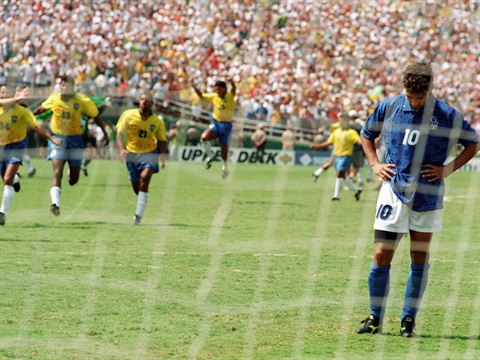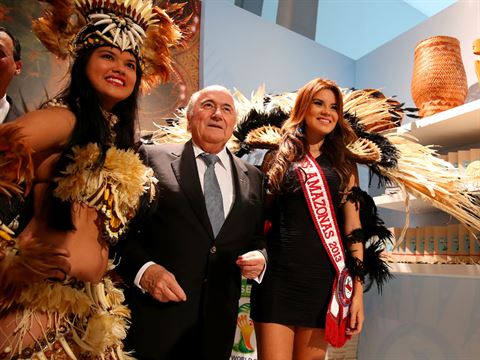We think... • June 2014
The World Cup: love it or give it the boot?
Football fever is set to sweep the globe from 12 June-13 July as the 20th FIFA World Cup kicks off in Brazil. But not everyone is falling for the hype of the beautiful game. Sport magazine’s Mark Coughlan (@coffers83) thinks it’s lost its appeal, while Simon Rice (@simonrice), digital sports editor for The Independent, can’t wait to get stuck into the action
Love it, says Simon Rice
There were two numbers infinitely more important than any of those in the economics exam I was sitting. They were those in the scoreline* of the England v Brazil game being played out at the 2002 World Cup in Japan. I had convinced my teacher to bring me the result of the match that was finishing midway through the test. Looking back, it was obvious I was destined to work in the world of sport rather than the economy.
My intense interest in football and what is still its greatest competition began some eight years before as I took in the 1994 instalment hosted by the USA. The overriding memory was Roberto Baggio, sporting a ridiculous ponytail, missing the vital spot kick in Italy’s penalty shoot-out defeat to Brazil.
In the 20-odd intervening years, there have been so many more dramatic, daft and inspirational moments. There was the genius of Dennis Bergkamp in 1998 as he took the ball out of the sky, nutmegged his Argentinian opponent, and scored a goal that took the Netherlands into the semifinals. In the 2006 final, France legend Zinedine Zidane inexplicably rammed his head into the chest of Italian Marco Materazzi. Justice was served in 2010 as the delicate tiki-taka football of Spain overcame the brute force of the Netherlands in South Africa.
The details of these moments are impossible to predict, but a World Cup guarantees them. Friends, families, entire nations will come together to witness these dramas and share in the pain and joy of following the fortunes of their country. Penalty shoot-outs, red cards, incredible goals and the unknown – there really is no better show on the planet.
* The score said England had lost 2-1. Thankfully I did better. I got an A.

Fever pitch: Italian midfielder Roberto Baggio misses a penalty kick against winners Brazil in 1994. Photography: Getty Images
Not for me, says Mark Coughlan
The World Cup has become a globalised tournament and, in doing so, it’s lost its global appeal.
That might sound a bit odd, but let me explain. The enigma that once surrounded the World Cup has gone because the latest highlights from across the world are available at the touch of a button. We can find out everything there is to know about players, tactics and history within moments – and that’s the problem.
The World Cup once brought us unknown opponents and unlikely heroes, who shone on the screen for just four short weeks before disappearing back to their clubs. Without that mystery factor, the World Cup becomes just another tournament, and frankly it doesn’t match up to the champions leagues of this world for sheer drama and entertainment. The players aren’t together for long enough to play an attractive style, and there’s not as much at stake because the money at club level has become the be-all and end-all.

All about the money? Fifa’s head honcho Joseph Blatter arrives at the World Cup draw
Not that money doesn’t rear its head at the World Cup, of course. Those saying money is ruining the club game need only to look at the debacle surrounding the Qatar World Cup 2022 to see how the top table is dominated by fat cats.
With that financial rise, the World Cup has been brought kicking and screaming into the professional era – and the loss of its naivety is the loss of its unique global appeal for this disgruntled sports writer.
There’s more to Brazil than football. Discover its highlights on ba.com